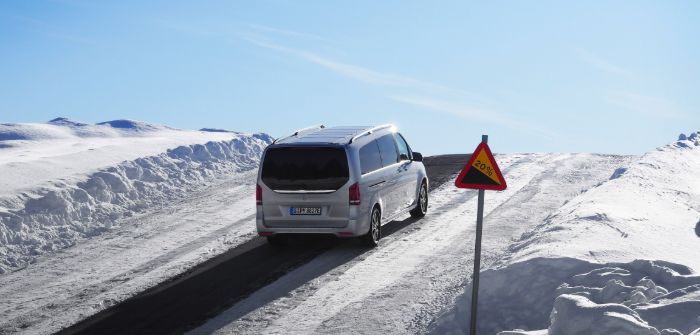In Sweden there are currently no COVID-19 measures in place, enabling vehicle testing in the country to continue apace. Engineers at Mercedes-Benz recently traveled to Arjeplog to carry out winter testing and analysis of the new EQV 300. At temperatures reaching -30°C, on icy roads and in deep snow, the EQV is said to have proved its operability under the most extreme of conditions.
The vehicles were put through numerous complex tests on the test site close to the Arctic Circle. Over 30 engineers, electronics experts and mechanics from Mercedes-Benz Vans were involved. As an example they drove over frozen lakes and measured the effects of the extreme cold on handling, ergonomics and comfort using specialized measuring technology. The starting behavior and low-temperature resistance of the drive components, software and interfaces, and the thermomanagement of the entire vehicle, were tested in cold cell facilities.
A further important element of the test assessed the vehicle’s charging behavior. The EQV is equipped with an integrated fast-charging function that enables it to recharge from 10% to around 80% of its energy in 45 minutes.
Reliable handling in ice and snow is also essential. On the test drives, the EQV showed that the low, central positioning of the lithium-ion battery in the underbody has a positive effect on the vehicle’s handling, specifically under winter conditions.
“In this final winter test, we demanded everything of the EQV – and it performed very well. We used these extensive tests for the last milestones on the way to market readiness,” said Benjamin Kaehler, head of e-drive vans at Mercedes-Benz Vans.
“Particularly with regard to thermal management, so important to electric vans, we were able to gain insights which will make the EQV safer and more comfortable.”


